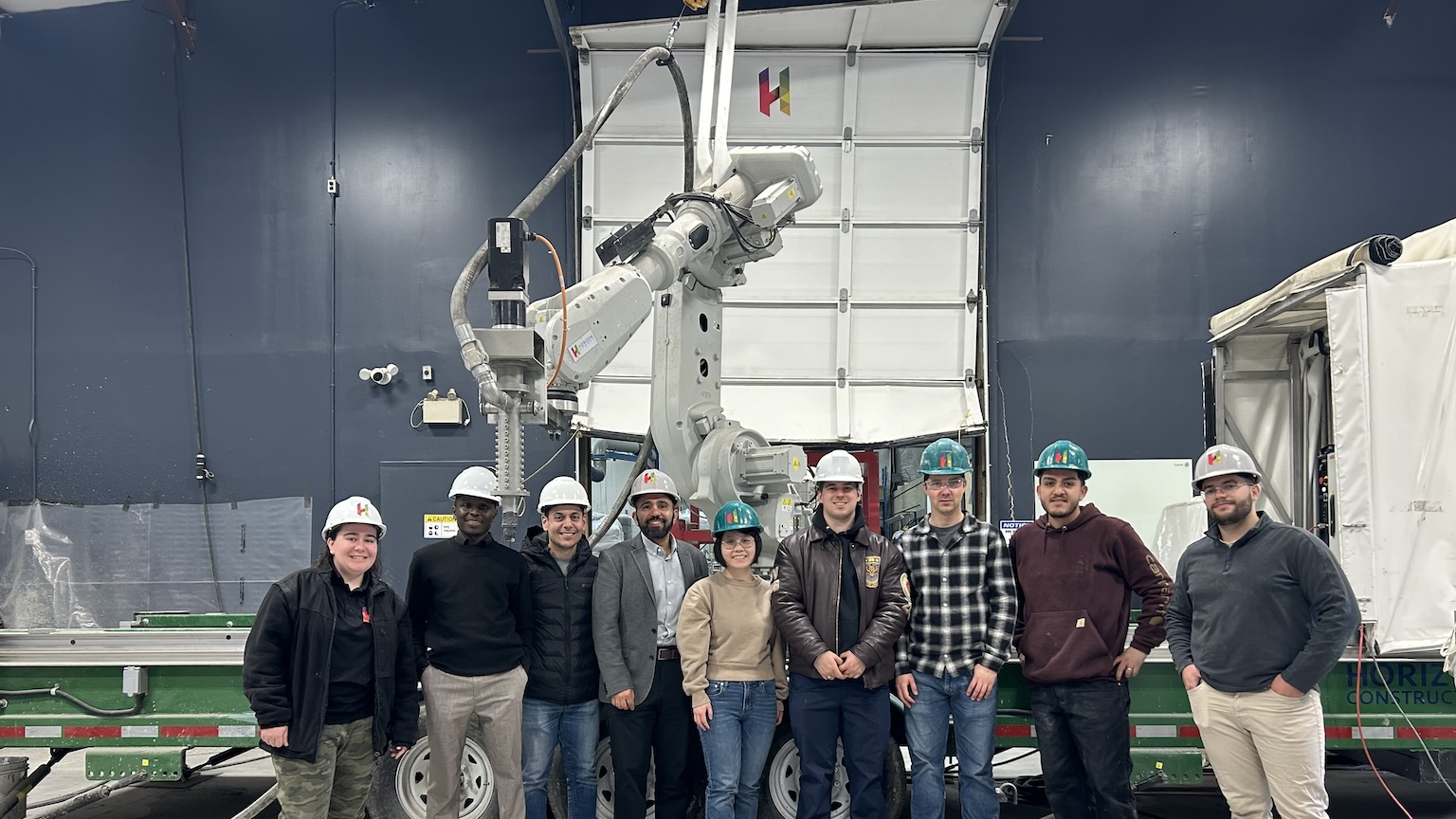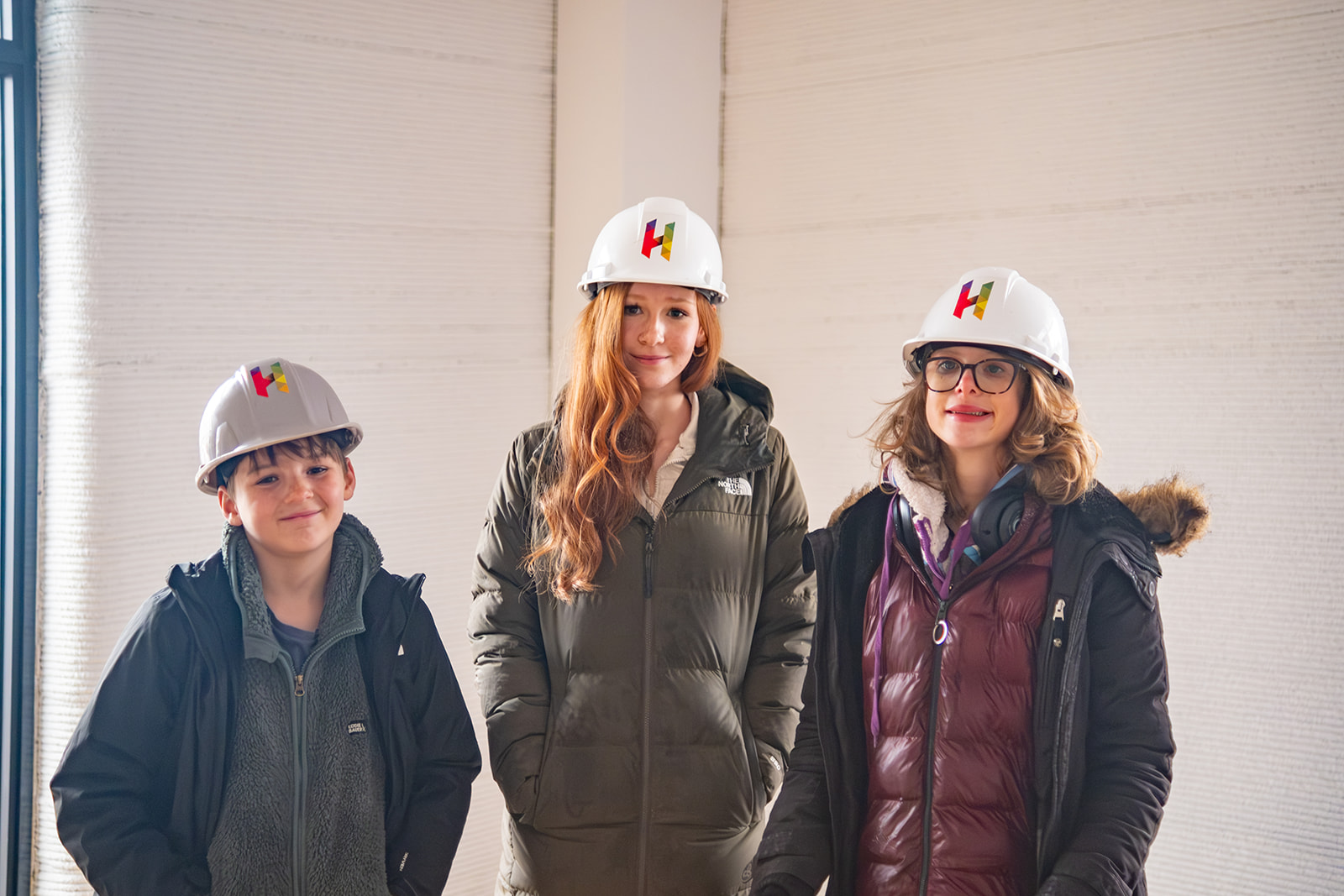
Automated building systems for mid-rise construction: A solid solution to Canada’s housing crisis
In a bold step toward solving Canada’s housing crisis, researchers from McMaster University’s Faculty of Engineering have partnered with construction automation leader Horizon Legacy to pioneer the use of onsite robotics in mid-rise building construction.
Automated building systems for mid-rise construction: A solid solution to Canada’s housing crisis
In a bold step toward solving Canada’s housing crisis, researchers from McMaster University’s Faculty of Engineering have partnered with construction automation leader Horizon Legacy to pioneer the use of onsite robotics in mid-rise building construction.
Supported by an NSERC Alliance Advantage Grant, professors Mohamed Ezzeldin, Cancan Yang and Ousmane Hisseine from the Department of Civil Engineering are leading a multidisciplinary initiative to develop data and analytical tools that will guide the integration of standardized onsite robotics into Canadian building codes and standards. Their goal is to revolutionize the construction industry by making high-performance, digitally fabricated concrete housing scalable, sustainable and accessible across the country.
Driving innovation through advanced research facilities
The project leverages cutting-edge resources at McMaster’s Applied Dynamics Lab (ADL), the Additively Manufactured Homes for Mobility and Equity (AM-HOME) Lab and Horizon’s Construction Automation Lab. Together, these facilities are developing faster, resilient and cost-effective construction solutions tailored to Canada’s harsh climate.
Established in 1965, the ADL has long been a hub for materials and large-scale structural engineering research. It also serves as the foundation for Hisseine’s groundbreaking work in decarbonization pathways for cement and concrete composites.
%20(LinkedIn%20Post)%20(1).png)
“The Applied Dynamics Lab has been instrumental in advancing our understanding of material innovation and structural performance,” says Hisseine. “Its legacy in large-scale experimental research, combined with our ongoing work in sustainable concrete technologies, provides a strong foundation for this partnership. By integrating ADL’s capabilities into this project, we’re able to rigorously develop, test and validate automated construction methods that are not only efficient but also resilient and environmentally responsible.”
Launched in 2025, the AM-HOME Lab is McMaster’s newest innovation hub for construction technology. Led by Ezzeldin and Yang, the lab is designed to demonstrate how 3D concrete printing with onsite robotics can transform housing
“Our lab is dedicated to developing customizable and efficient single-storey buildings,” says Yang. “For multi-storey structures, we plan to integrate 3D printing with prefabrication and modular construction techniques. This approach will enable faster assembly, greater scalability and simplified repair and disassembly.”
The AM-HOME Lab is tackling three critical challenges to make onsite robotics a viable and competitive construction method: ensuring structural safety in earthquake-prone regions, adapting to Canada’s diverse environmental conditions and evaluating performance under impact and blast loading scenarios
“By addressing these challenges, we can provide equal housing opportunities across different regions in Canada,” Yang adds.
Ezzeldin highlights the broader impact of the lab’s work, saying, “The body of knowledge generated at AM-HOME will be instrumental in developing standardized performance test protocols and design provisions for integration into the National Building Code of Canada and CSA standards. This technology transfer will help bring onsite robotics and 3D printing to maturity, enabling digital concrete to truly transform Canada’s construction sector and support a more sustainable future.”
A partnership built on shared vision
The collaboration between McMaster and Horizon Legacy began in the summer of 2025, rooted in a shared commitment to innovation, technology and leadership in the built environment. Both institutions are united in their mission to push the boundaries of what’s possible through advanced research, interdisciplinary collaboration and real-world application.

“At Horizon Legacy, we believe innovation is only as powerful as the people and ideas driving it,” says CEO Nhung Nguyen. This shared vision is reflected in Horizon’s pioneering work in onsite robotics—complementing McMaster’s strengths in materials science and structural engineering.
With over 70 years of experience delivering commercial, residential and infrastructure projects, Horizon Legacy blends deep industry expertise with cutting-edge innovation to reshape how we build. The company is at the forefront of using robotics to address the skilled labour shortage and the urgent need for housing; two of the industry’s most pressing challenges.
“This partnership is about shaping the future of construction and empowering the next generation of creators and problem-solvers,” says Archer Compton, Director of Strategic Growth at Horizon Legacy. “We’re proud to support McMaster with tools that can accelerate access to housing.”
.png)

.png)
.svg)
.png)



